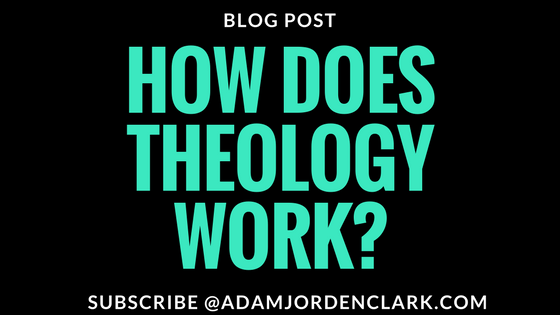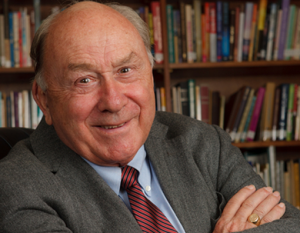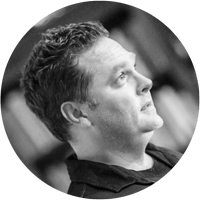
How to do theology?
7 minute read

How to do theology?
7 minute read
When I was first introduced to theology at the academic level I was a freshman in college. In fact, Elmer L. Towns was my first teacher who introduced me to theology academically. I say academically because there is a difference between academic theology and laymen theology.
Theology is not just about big words and confusing concepts. It is about formulating a rational idea about the nature and character of God. This is why there are so many different types of theologies. Of course, there is no “right” theology because all theologies are problematic because of flawed human reasoning and lack of biblical information e.g., no one knows the time of Jesus’ return.
Take Systematic Theology for example. It is a series of complex ideas that attempts to describe God’s interaction with mankind through Jesus Christ. It is a broad approach to theology that seeks to explain what a person believes about God and his relationship to mankind.
In matters of soteriology, (the doctrine of salvation), there are two main camps; Calvinism and Arminianism. One believes that God saves man without man’s intervention and the other believes that man is required to participate in God’s plan for salvation.
While these views are dramatically different in terms of methodology; they both agree that the salvation of mankind comes from God through Jesus Christ.
- But what if God does not save mankind?
- What if God does not interact with mankind?
- What if Jesus was not divine and he never came to save mankind?
These kinds of questions, although rejected by Evangelicals and considered heresy, are purely theological and there are some people who even hold these kinds of believes like Atheist and Deist.
Even though Evangelicals reject the theology of Atheism and Deism, it does not discount the fact that Atheism and Deism are theological positions. Strangely, both of these views are heavily based upon the Bible, much like Christianity, except they arrived at completely different conclusions.
But this is the world of theology. This is why it is such a fascinating study. I believe that everyone should be interested in studying theology (at some level) because it helps you really understand the world and how people choose to interact with the world.
Naturally, this article seeks to lay a foundation for those who are considering advancing in the study of theology.
You could think of this article as your first real introduction to theology (if you have never studied it in college or something like that).
So, to get back to my original paragraph about Elmer Towns, let me explain to you who he is first before we go any further into the beginnings of theology.
Who is Elmer L. Towns?

Elmer Leon Towns, Jr. (1932- ): He contributed to the popularization of the megachurch and of many principles of the church-growth movement among fundamentalist and conservative-evangelical Christians. Born on October 21, 1932, Towns has served Liberty University - the school he co-founded with Jerry Falwell - for more than 30 years. Towns has penned approximately 2,000 articles and more than fifty books on various aspects of church growth, with an emphasis on effective Christian education organizations and pastoral leadership.
Elmer Leon Towns, Jr. (1932- ): He contributed to the popularization of the megachurch and of many principles of the church-growth movement among fundamentalist and conservative-evangelical Christians. Born on October 21, 1932, Towns has served Liberty University - the school he co-founded with Jerry Falwell - for more than 30 years. Towns has penned approximately 2,000 articles and more than fifty books on various aspects of church growth, with an emphasis on effective Christian education organizations and pastoral leadership (http://www.talbot.edu/ce20/educators/protestant/elmer_towns/)
Towns is a highly talented teacher who has the ability to break complex ideas down to laymen’s terms. When I first started learning theology academically from reading his books I was exposed to a higher level of learning.
Now that I have advanced in learning, I have come to realize that Towns does not go much beyond laymen’s terms. This is due to ministry, which is purely laymen i.e., pastors, leaders, worship team etc. So, I only recommend his work to those who are not familiar with his writings or to those who are in the beginning stages of theology.
Prolegomena
(prō-li-ˈgä-mə-nə)
(prō-li-ˈgä-mə-nə)
Believe it or not, one of the first Greek words I learned was Prolegomena. The easiest way to define this word is to describe it like a “prologue” or “introduction.” However, the real meaning of prolegomena goes much deeper than the beginning of something.
But let me say this before I go any further. “Prolegomena” is not something that is used by every theologian on a regular basis. In fact, it is really only used in the beginning of learning theology because it serves as a foundation for the rest of theology that you will learn.
You could say that it is the “first thing” you would learn if you were to study theology in college, but you won’t be learning “prolegomena” during your master’s program of postgraduate work.
This does not mean “prolegomena” is useless.
It only means that it is something that you will have to learn first so you can then learn new things.
What is “Prolegomena?”
I have read a lot of material on how different theologians have answered this question. Throughout my readings I have come to the belief that Michael Patton has explained “What is prolegomena?” the best for laymen. He cut out all the confusing theological, historical, and philosophical concepts and just broke it down to simple terms that virtually anyone can understand.

C. Michael Patton (ThM, Dallas Theological Seminary) is president of Reclaiming the Mind Ministries. In addition to serving under Chuck Swindoll for six years at Stonebriar Community Church, he is a fellow at the Credo House of Theology in Edmond, Oklahoma, developer of The Theology Program, and host of the popular podcast Theology Unplugged. Patton and his wife have four children.
Patton wrote,
Prolegomena. Big word, huh? Although it might sound like something you need to get shots for, there is not one area of theology that people today need to become more familiar with. It is taken from the Greek Pro which means “before” and Legomena which means “to speak” or “to say.” So prolegomena means the things that need to be said beforehand in order to give the learner a better understanding—or better—a foundation for what is forthcoming. In theology prolegomena refers to the issues of theology that need to be learned before one can learn anything further. These issues include theological methodology—how do you do theology? issues of epistemology—how do we acquire knowledge? overviews of theological systems and traditions—what is the difference between traditions? and sources for theology—where do we go for truth? It provides the “rules of engagement” for learning truth. In short, prolegomena is starting at the very beginning (https://bible.org/article/theology-lets-start-very-beginning).
In a nutshell, prolegomena is the process that occurs before you can even begin studying theology. It is when you make an assessment of your own personal beliefs about God, Jesus, the Bible, and other things of the nature. We call your personal beliefs Presuppositions because they are your preconceived notions you have before you begin looking into any theological matter.
For example, if you think that God exists, then your presupposition is that you believe God exists. Likewise, if you think God does not exist, then that would be your presupposition also.
The point is not to say that people who “good” or “bad” presuppositions. The point to be made is that everyone literally believes something before they begin studying theology.
However, the problem with presuppositions is that they can be wrong and they can also change. Regardless of what happens later down the road, people need to be aware of what they currently believe heading into the study so then can truly grasp theology at its core (and not at your core).
Does Theology matter?
Elmer Towns published a book in 2002 titled Theology for Today. In fact, I recommend this book alongside my blog posts because I believe that it is a great book and everyone who is interested in theology should read it.
Yes, it is a larger book (nearly 850 pages), but that is because it covers all the basic stuff you need to know about theology. More importantly, Town’s breaks all this stuff down to normal people’s terms so virtually everyone can understand it. His whole career has been based on his easy communication skills and it shows better in his older age.
In other words, his book will push you in the right direction if you truly want to know all the basic stuff about theology (even the stuff you will learn in college).
Let me give you an example of what I am talking about.
Lately, many people have come to the belief that theology is no longer important (And this is a growing problem). But these people are entirely wrong. Theology is the foundation of everything that has to do with the existence of God.
Town’s put it best in his book, Theology for Today. He wrote,
They tell me theology is “out” because Baby Boomers did not want doctrine or theological teaching in the church. They wanted practical topics that will help them live for Christ. As a result, doctrine has taken a back seat in lay Bible study groups to such topics as “How to Parent” or “How to Manage Money” or “How to Overcome Depression.” Even our seminaries are decreasing the required hours in theology, replacing doctrine in the curriculum with courses in counseling strategies of leadership, and staff management. While these are all good and necessary, remember theology is the foundation for our belief.[1]
Town’s stated the obvious truth that the church has completely ignored theology altogether and have now gone down the path of self-help and self-improvement. Keep in mind that Town’s words are fifteen years old at the time of this writing and he addressed a problem that began in the mid to late 1980s.
In other words, anti-theology has become so popular over the past 30 or so years that no one hardly even thinks of theology when discussing God, Jesus, or the church. What a major problem!
A church, that is supposed to have theology, that has turned against theology entirely, is no church at all. Instead, it is a community of people who want to feel emotionally appreciated for their efforts of becoming a better person, which, of course, has nothing to do with Christianity.
I believe that Town’s wrote Theology for Today because he wanted to help people wake up to the fact that theology is disappearing from the church and may already even be gone. But we must ask ourselves a very simple question: “Do we care about theology?”
If so, then let us examine our presuppositions so we can begin to study theology— so maybe one day —we can teach it to others!

Bio
Adam Jorden Clark is a prolific blogger, writer, theologian, and historian. His study focus is the New Testament, in which he discusses the theology and history of the text.
His updated writing skills and his modern approach to readers makes the New Testament come alive as his writing is filled with fun and exciting facts.
Education
- A.A., Psychology, 2013;
- B.A., Religion, 2015;
- M.A., Theological Studies, Liberty University, 2016;
Experience
Adam Jorden Clark has written six books including Am I Christian? —a top of the line book that explains how to the live the Christian life from a practical perspective —And What is Righteousness? which explains how God has required Christians to live a righteous life.
Adam Jorden Clark’s blog covers many different topics. But much of his writing is centered on theology, church history, the New Testament, the Bible, and the Gospel. You can read his weekly blog postings by subscribing to his blog.
Other Activities
Besides his weekly blog postings and book writing, Adam Jorden Clark spends his time outdoors as an avid cyclist. He is interested in long-distance cycling and posts updates of his cycling on his Instagram account @adamjordenclark. His dream of long-distance cycling is to compete as a single rider in the Race Across America (RAAM) —A 3,000-mile bicycle race from San Diego, CA to Atlantic City, NJ, which must be completed in 12 days or less.
If you find my story appealing or think I may have something worth reading in the future, then follow my Steemit account
Website:
And you can subscribe to my blog: www.adamjordenclark.com/subscribe
View this Article www.adamjordenclark.com/how-does-theology-work/
Soical Media:
- Facebook: www.facebook.com/adamjordenclark/
- Instagram: www.instagram.com/adamjordenclark/
Adam Jorden Clark is a prolific blogger, writer, theologian, and historian. His study focus is the New Testament, in which he discusses the theology and history of the text.
His updated writing skills and his modern approach to readers makes the New Testament come alive as his writing is filled with fun and exciting facts.
Education
- A.A., Psychology, 2013;
- B.A., Religion, 2015;
- M.A., Theological Studies, Liberty University, 2016;
Experience
Adam Jorden Clark has written six books including Am I Christian? —a top of the line book that explains how to the live the Christian life from a practical perspective —And What is Righteousness? which explains how God has required Christians to live a righteous life.
Adam Jorden Clark’s blog covers many different topics. But much of his writing is centered on theology, church history, the New Testament, the Bible, and the Gospel. You can read his weekly blog postings by subscribing to his blog.
Other Activities
Besides his weekly blog postings and book writing, Adam Jorden Clark spends his time outdoors as an avid cyclist. He is interested in long-distance cycling and posts updates of his cycling on his Instagram account @adamjordenclark. His dream of long-distance cycling is to compete as a single rider in the Race Across America (RAAM) —A 3,000-mile bicycle race from San Diego, CA to Atlantic City, NJ, which must be completed in 12 days or less.
If you find my story appealing or think I may have something worth reading in the future, then follow my Steemit account
Website:
And you can subscribe to my blog: www.adamjordenclark.com/subscribe
View this Article www.adamjordenclark.com/how-does-theology-work/
Soical Media:
- Facebook: www.facebook.com/adamjordenclark/
- Instagram: www.instagram.com/adamjordenclark/
Adam Jorden Clark has written six books including Am I Christian? —a top of the line book that explains how to the live the Christian life from a practical perspective —And What is Righteousness? which explains how God has required Christians to live a righteous life.
Adam Jorden Clark’s blog covers many different topics. But much of his writing is centered on theology, church history, the New Testament, the Bible, and the Gospel. You can read his weekly blog postings by subscribing to his blog.
Other Activities
Besides his weekly blog postings and book writing, Adam Jorden Clark spends his time outdoors as an avid cyclist. He is interested in long-distance cycling and posts updates of his cycling on his Instagram account @adamjordenclark. His dream of long-distance cycling is to compete as a single rider in the Race Across America (RAAM) —A 3,000-mile bicycle race from San Diego, CA to Atlantic City, NJ, which must be completed in 12 days or less.
If you find my story appealing or think I may have something worth reading in the future, then follow my Steemit account
Website:
And you can subscribe to my blog: www.adamjordenclark.com/subscribe
View this Article www.adamjordenclark.com/how-does-theology-work/
Soical Media:
- Facebook: www.facebook.com/adamjordenclark/
- Instagram: www.instagram.com/adamjordenclark/
And you can subscribe to my blog: www.adamjordenclark.com/subscribe
View this Article www.adamjordenclark.com/how-does-theology-work/
Soical Media:
- Facebook: www.facebook.com/adamjordenclark/
- Instagram: www.instagram.com/adamjordenclark/
Footnotes
[1] Elmer L. Towns, Theology for Today (Belmont, CA: Wadsworth Group, 2002), 1.
Bibliography
Towns, Elmer L. Theology for Today. Belmont, CA: Wadsworth Group, 2002.
thank you for following me in advance. i will upvote and comment on your every post if you do the same we both are new on steemit.if it works for you let me know just reply this post
Downvoting a post can decrease pending rewards and make it less visible. Common reasons:
Submit
Congratulations @adamjordenclark! You received a personal award!
Click here to view your Board of Honor
Downvoting a post can decrease pending rewards and make it less visible. Common reasons:
Submit
Congratulations @adamjordenclark! You received a personal award!
You can view your badges on your Steem Board and compare to others on the Steem Ranking
Vote for @Steemitboard as a witness to get one more award and increased upvotes!
Downvoting a post can decrease pending rewards and make it less visible. Common reasons:
Submit